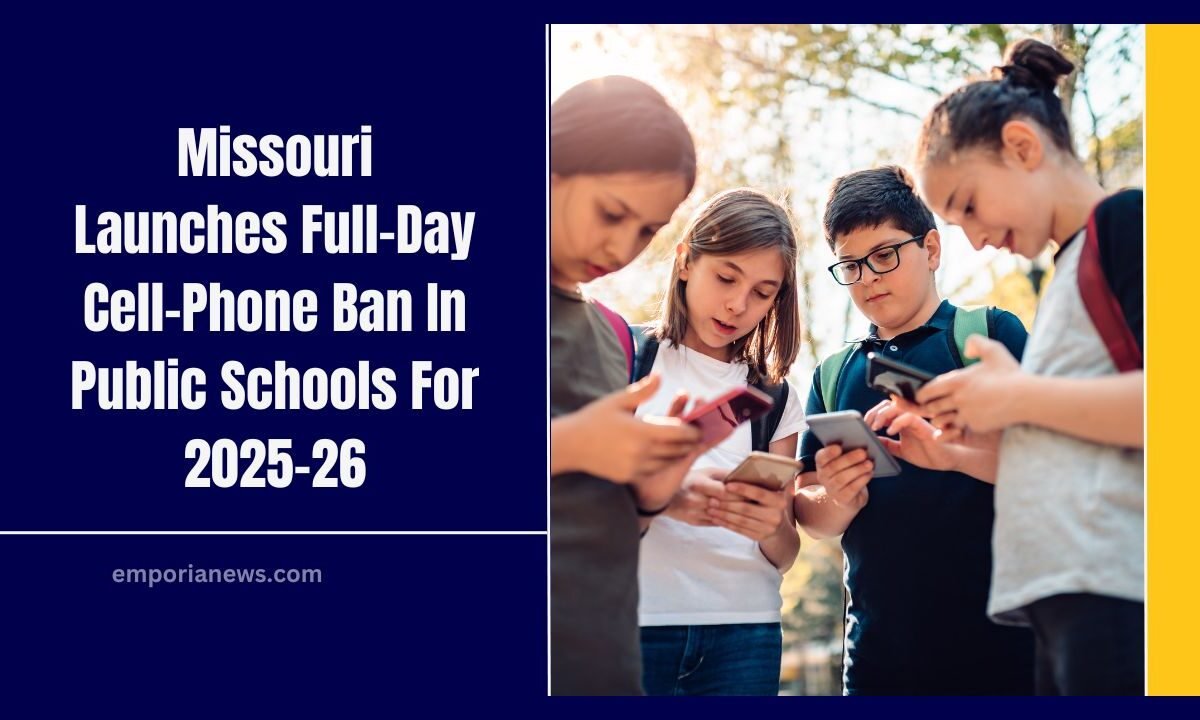As the 2025–26 school year opens in Missouri, cell-phone-free classrooms are now the norm—thanks to a new statewide law that bans all personal electronic devices—from the beginning to the end of each school day.
Signed into law by Governor Mike Kehoe in July, the legislation mandates that every public and charter school district implement a written policy prohibiting the use or display of cell phones, tablets, smartwatches, and similar devices throughout the school day—including during meals, passing periods, and study halls.
Policy Details and Flexibility
| Feature | Details |
|---|---|
| Effective School Year | 2025–26 academic year |
| Scope | Full-day ban on personal electronic devices at all K-12 schools |
| Exceptions Allowed | Emergencies, educational use upon teacher approval, medical/IEP needs |
| Local Flexibility | Districts decide stowage (backpack, phone pouch, etc.), enforcement, discipline |
| Included Devices | Cell phones, tablets, smartwatches, headphones (personal devices) |
The law allows districts to tailor enforcement—some may permit devices in backpacks (turned off), while others may opt for locking pouches or centralized collection methods during the day.
Why Missouri Chose This Path
Missouri joins a growing number of states aiming to reduce classroom distractions, improve student focus, and enhance social engagement.
Concerns have surfaced over how unregulated phone use impacts learning, mental health, and increases opportunities for cyberbullying.
The “bell-to-bell” approach reflects the belief that a strict, consistent rule—without loopholes—offers the strongest chance at restoring classroom attention and improving outcomes.
How Districts Are Responding
Rockwood School District (Eureka):
Allows smartwatches only for telling time, not for communication during the day.
North Kansas City School District:
Completely prohibits smartwatches with messaging. Fitness trackers without messaging are allowed. Parents are told phones should be off and stowed.
St. Louis Public Schools:
Grants each campus the autonomy to select its phone collection method. Gateway STEM High School is piloting Yondr locking pouches, a measure that cost approximately $40,000 to implement.
Ritenour School District:
Formed a committee with teachers, parents, and students to craft a policy that balances digital wellness with student engagement, set to launch in August.
Voices of Support—and Practical Challenges
Many educators and parents welcome the law. They argue it gives schools the authority to combat digital distractions and reinforce why devices aren’t allowed.
Some parents, however, express concerns—particularly about emergency communication or contact during pickup.
Districts emphasize that exceptions exist for emergencies and health-related device use, and districts are providing guidance on how families can stay connected in urgent situations.
Missouri’s sweeping full-day cell-phone ban marks a bold effort to reclaim focus and learning time in classrooms. With flexibility for implementation, support from educators, and provisions for exceptions, the law aims to enhance student well-being and academic success.
As the year unfolds, districts will refine how best to enforce and communicate these new digital boundaries—hoping to turn a mobile ban into a powerful tool for stronger, distraction-free education.




